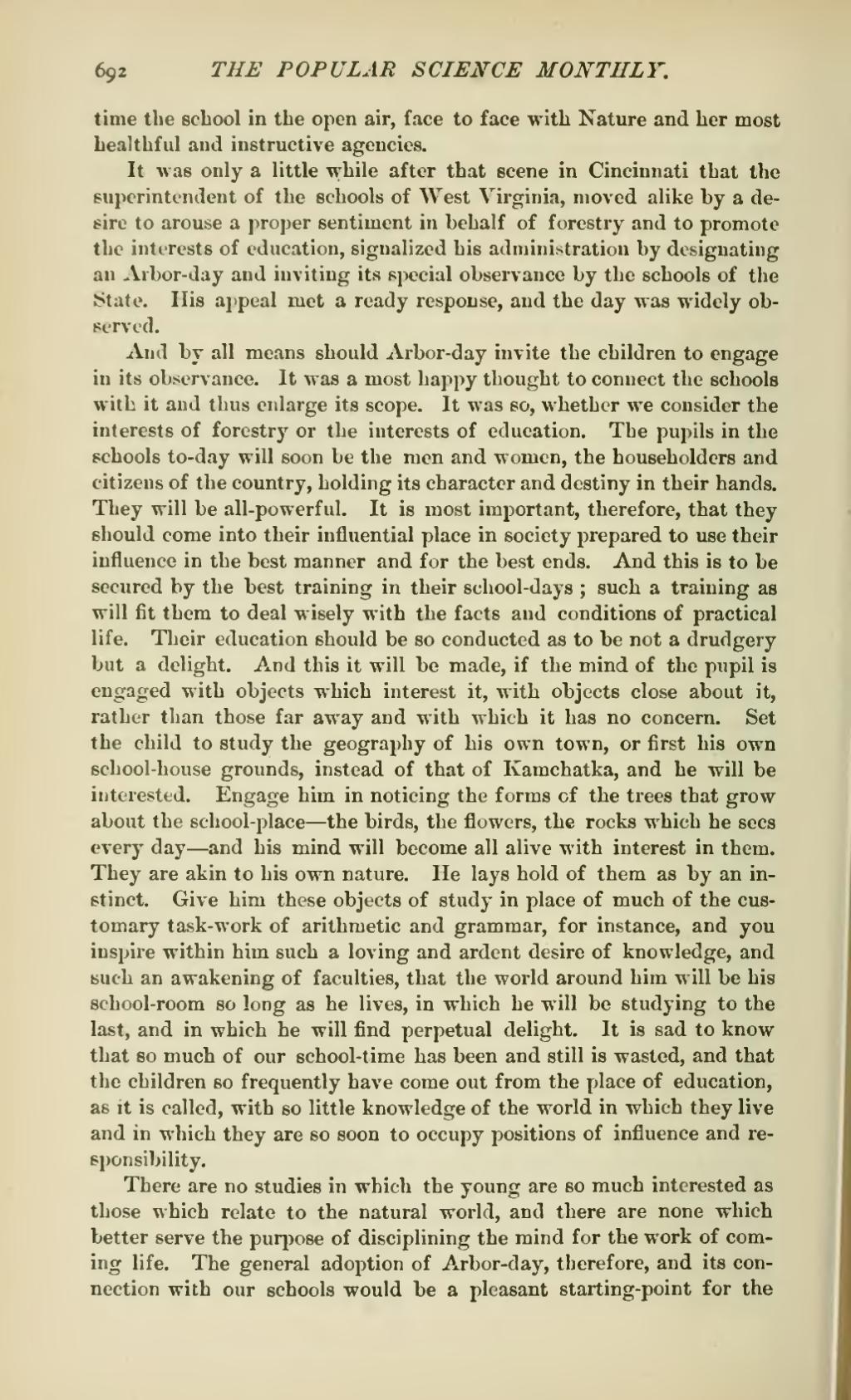time the school in the open air, face to face with Nature and her most healthful and instructive agencies.
It was only a little while after that scene in Cincinnati that the superintendent of the schools of West Virginia, moved alike by a desire to arouse a proper sentiment in behalf of forestry and to promote the interests of education, signalized his administration by designating an Arbor-day and inviting its special observance by the schools of the State. His appeal met a ready response, and the day was widely observed.
And by all means should Arbor-day invite the children to engage in its observance. It was a most happy thought to connect the schools with it and thus enlarge its scope. It was so, whether we consider the interests of forestry or the interests of education. The pupils in the schools to-day will soon be the men and women, the householders and citizens of the country, holding its character and destiny in their hands. They will be all-powerful. It is most important, therefore, that they should come into their influential place in society prepared to use their influence in the best manner and for the best ends. And this is to be secured by the best training in their school-days; such a training as will fit them to deal wisely with the facts and conditions of practical life. Their education should be so conducted as to be not a drudgery but a delight. And this it will be made, if the mind of the pupil is engaged with objects which interest it, with objects close about it, rather than those far away and with which it has no concern. Set the child to study the geography of his own town, or first his own school-house grounds, instead of that of Kamchatka, and he will be interested. Engage him in noticing the forms of the trees that grow about the school-place—the birds, the flowers, the rocks which he sees every day—and his mind will become all alive with interest in them. They are akin to his own nature. He lays hold of them as by an instinct. Give him these objects of study in place of much of the customary task-work of arithmetic and grammar, for instance, and you inspire within him such a loving and ardent desire of knowledge, and such an awakening of faculties, that the world around him will be his school-room so long as he lives, in which he will be studying to the last, and in which he will find perpetual delight. It is sad to know that so much of our school-time has been and still is wasted, and that the children so frequently have come out from the place of education, as it is called, with so little knowledge of the world in which they live and in which they are so soon to occupy positions of influence and responsibility.
There are no studies in which the young are so much interested as those which relate to the natural world, and there are none which better serve the purpose of disciplining the mind for the work of coming life. The general adoption of Arbor-day, therefore, and its connection with our schools would be a pleasant starting-point for the
